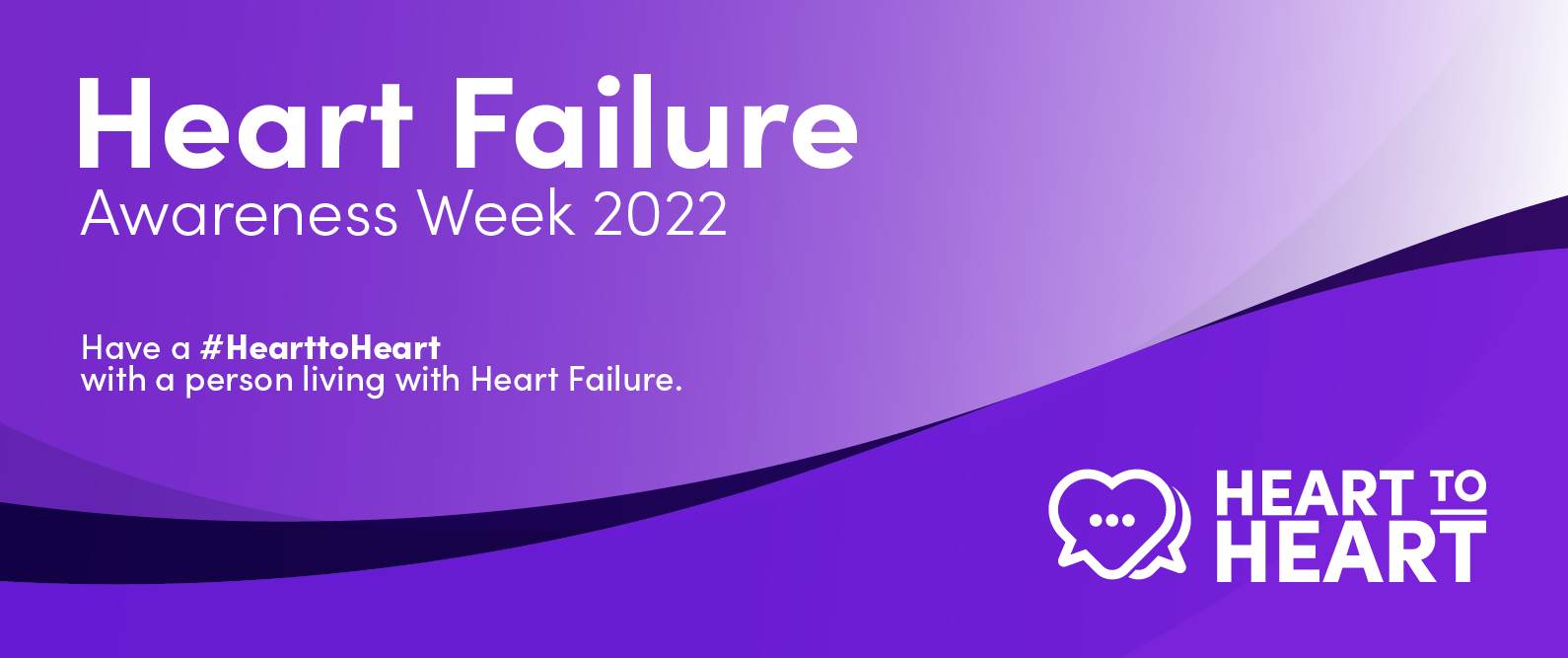
Heart Failure Awareness Week
May 9 – 15, 2022 #HearttoHeart

“After my diagnosis of Heart Failure in 2016, I strongly knew I wanted to share my story of what happened with me. Especially that my heart failure was misdiagnosed, because I did not fit into the “standard frame” of a heart failure patient.
Who would think a healthy, young and energetic person could end up with end stage of heart failure!”, says Aistė Štaraitė, Chair of the Global Heart Hub Heart Failure Patient Council.

Take time this Heart Failure Awareness Week to understand heart failure and connect with a person living with heart failure for a #HearttoHeart.
Heart Failure does not mean that the heart has stopped working, but it means that the body is not getting the oxygen and nutrients that it needs to function normally. Millions of people worldwide are living with heart failure today, and with the right medication and lifestyle, it can be controlled.
Watch now – Heart to Heart recordings
Let’s focus on living, because even with heart failure, you can still be you.
If you are living with heart failure, there are lots of things that you can do to help manage your condition, including medical treatments, adjusting your lifestyle and self-management. For example:
- Connect regularly with your heart failure nurse or doctor (see our virtual patient guide for online calls)
- Track your symptoms and seek help if you develop new or worsening symptoms (see our heart failure symptom tracker)
- Take your medications as prescribed
- Eat a healthy diet, with limited salt intake
- Get regular physical activity
- Join a support group for people living with heart failure
Know The Symptoms of Heart Failure
Heart failure can affect different people in different ways. Symptoms can come on suddenly and be initially severe (acute heart failure) or they can appear over time and gradually get worse (chronic heart failure). If you have heart failure, you may have one, or a combination, of these symptoms. The more common symptoms of heart disease are:
- Coughing/wheezing
- Extreme tiredness or no energy
- Loss of appetite
- More frequent urination, especially at night
- Rapid heartbeat or palpitations
- Shortness of breath
- Shortness of breath, even when lying down
- Swelling in the ankles/feet/stomach
- Weight gain over a short period of time (>2kg over 2 days)
By themselves, any one sign of heart failure may not be cause for alarm. But if you have one or more of these symptoms, even if you haven’t been diagnosed with any heart problems, you should visit your GP and ask the question “Could I have heart failure?”.
Why creating awareness about Heart Failure is so important
Heart failure is a serious chronic condition where the heart cannot pump enough blood to support the needs of other organs in the body. The most common causes of heart failure include coronary heart disease, myocardial infarction (heart attack), congenital heart defects, or damaged heart valves. Symptoms include breathlessness, fatigue and swollen limbs. It is estimated that 1 in 5 people are at risk of heart failure and it is the most frequent cause of hospitalisation in people over the age of 65.
The Heart Failure Patient Council is united in the view that heart failure is poorly recognised and not well understood by both the general public and healthcare professionals. There is global consensus that:
- The early signs and symptoms of heart failure are often dismissed as normal signs of ageing and thus overlooked as early presentation of the disease.
- There are significant gaps in access to diagnostics in primary care, which result in inequities and delays in diagnosis. Heart failure diagnoses are frequently made late and often the patient has developed acute disease.
- There is considerable variation and inequity of access to international best practice and specialist care, including access to heart failure nurse specialists (both in hospital and in the community).
- Failure and delays in recognising and treating heart failure appropriately is contributing to high hospital admission and re-admission rates, with consequential economic burden on healthcare systems and huge impact on patients and carers.
Get Involved
To join the campaign or for more information, please email info@globalhearthub.org.
Campaign Partners
The awareness campaign is led by the Heart Failure Patient Council of the Global Heart Hub. The Heart Failure Patient Council is an alliance of patient organisations from across the globe, working with heart failure patients and their carers. A priority of the council is to raise awareness of heart failure, promote public and healthcare education and advocate for policy action in an insufficiently recognised and increasingly burdensome disease area.

Supported by













